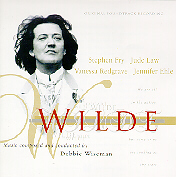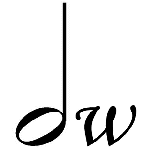Reviews – Wilde

by Mark Walker, The Gramophone
“Oscar Wilde was obsessed with beauty and one of my aims was for the score to be beautiful,” comments Debbie Wiseman in the booklet-notes for this, her second score for director Brian Gilbert. True to her stated aim, Wilde is one of the loveliest film scores of recent years.
Wiseman gives free rein to her most romantic sensibilities in a sensitive musical portrayal of Oscar Wilde’s incompatible loves; the heartfelt affection for his wife and children, the destructive passion for Lord Alfred Douglas. The composer’s principal theme for the “love that dare not speak its name” articulates Wilde’s feelings for Bosie; languid solos for oboe, cello and piano add a suggestively erotic veneer; the cumulative effect of this consciously “beautiful” melody is poignantly melancholic. In contrast is Constance’s theme, a subtle portrait of Wilde’s devoted and forgiving wife whose unwavering love for her wayward husband is given due prominence in the film. Wiseman’s inexpressibly touching melody rises and falls with gentle nobility; its tenderness and warmth place it at the very heart of the score. Both themes are contrasted by an arrangement of Sulllivan’s “Ah, leave me not to pine” from The Pirates of Penzance which functions in the film as an ardent love song for Oscar and Bosie and whose style dovetails sympathetically with Wiseman’s own.
Aside from a jaunty Western episode and a flamboyant fanfare (both of which are heard over the opening credits), the score remains focused on these central elements, but such is the strength and emotional depth of Wiseman’s music that within this narrow compass is to be found a wholly satisfying experience for the listener. Additional praise is due to MCI Presents on the occasion of this, their first CD release for their tasteful presentation and exemplary booklet. A beautiful score indeed.
by John Williams, Music From The Movies, with thanks to Peter D Kent.
Debbie Wiseman’s outstanding and quite moving score is as intricately part of the film’s texture as Stephen Fry’s finely tuned performance, Nic Ede’s superb costume designs and Michael Bradsell’s carefully paced editing. This is how it should be of course, but sadly it happens all too rarely. Certainly this must be her most ambitious project to date, and she has approached her task with all the expertise and assurance of a trusted veteran. Utilising large orchestral forces with quite stunning ability, her thematic material has not been swamped by the size of orchestra at her disposal. Indeed she has imaginatively opted for oboe solos delicately performed by Dick Morgan and highly effective piano solos by Andrew Bottrill and Debbie Wiseman herself. Combined with Martin Fuhrer’s immaculate photography, Debbie Wiseman’s music is not an adjunct to the film, it is another key component.
Wilde is a powerful love story in which there were no winners, only losers. The music lives outside the parameters for which it was written, a not inconsiderable achievement and it is no doubt a major development in Debbie Wiseman’s career and, as with all of the best film scores, time alone will reveal this to be one of the very finest ever written for what is a very fine motion picture.
by Paul Place, Music From The Movies
Debbie Wiseman’s sumptuous score for Wilde is certainly the finest of her career to date. Wiseman has always been noted for her wonderful gift for melody. Her themes for various television shows have always been immediately catchy, but also enduring. Although this certainly extended to her scores for such films as Tom & Viv and Haunted, Wilde is by far the most successful example of her gifts.
It seems almost clichéd to say so, but Wilde is a ‘truly’ beautiful score. AIl of Wiseman’s music is enthused with so much energy and vitality that it is almost impossible to dislike it. It’s up-front and melodramatic; literally bathed in passion, but somehow never overblown. Wilde is a ‘traditional’ orchestral score, with notable oboe solos by Dick Morgan, solo piano by Andrew Bottrill and the composer and cello solos and string co-ordination by Justin Pearson.
An overture, suitably entitled ‘Wilde’, opens the score in dramatic fashion and presents the first of many `themes’. Principally driven by strings it is a stirring and quite masculine theme evoking the conflicts that shaped the life of Oscar Wilde. It’s a turbulent rather than violent piece, housed by a certain flair and sophistication. The next track, intriguingly entitled ‘Wild West’, is just that, a broad and richly textured hoe-down. ‘I Do Need An Audience’ presents a picture of all things ‘English’, with bright brass fanfares amidst thick Elgar-like strings.
it is In the fourth track ‘Almost As Beautiful As His Mother’ that Wiseman plays her trump card. It is no exaggeration to say that the theme introduced in this cue is one of the finest I have ever heard in a film score. In John Willams’ excellent booklet notes Wiseman states, “Oscar Wilde was obsessed with beauty and one of my aims was for the score to be beautiful – using melody as a vital ingredient throughout.” The theme heard here, whist still quite masculine, has an emotional depth and beauty that is impossible to put into words: you can’t fail to be moved by it.
In the seventeen tracks that follow, Wiseman explores and develops these principal themes with great skill and eloquence before the nine minute finale ‘An Age of Silver’ brings the score to a heartbreaking conclusion.
Wilde is one of those rare scores that is so well written that each track plays like a piece of music in its own right and also joins the other tracks to form a cohesive whole. Indeed to be crude, the CD plays like a series of main titles. l can’t remember the last score I heard that was so listenable and I can’t recommend it highly enough.
Music: 5
Presentation: 5
Sound: 5
by David Ades, Journey into Melody (The magazine of the Robert Farnon Society)
This new film has attracted a great deal of publicity, but I have not yet had the opportunity to see it. Therefore I have listened to the music in isolation, as it were, without witnessing how well it fits the action on-screen. But since most people enjoy soundtrack albums for many years after they have seen the film, the music itself is obviously important in the long term. Debbie Wiseman has already received many plaudits for her previous work, and this new score will only add lustre to her impressive career (as she is still very young!). She has been given a large orchestra which she employs to perfection, weaving rich melodies to emphasise the anguish Wilde must have endured when his public adulation quickly evaporated.
Naturally some of the tracks are rather short, and end abruptly to match the action, but this is common on most soundtrack albums. The final track ‘An Age of Silver’, lasting over 9 minutes, is especially beautiful, with the ‘cello, piano and full symphony orchestra used to perfection. Debbie Wiseman (who has composed over 70 scores for films and television) has already received several awards for her work, and I should be surprised if her music for “Wilde” is not appropriately recognised by the film industry. The recording sessions took place at the famous Abbey Road Studios of EMI with Dick Lewzey in attendance as sound engineer. The quality shows!
by Empire Soundtracks
A moving orchestral work by Debbie Wiseman (Haunted and the Oscar-nominated score for Tom and Viv). Wiseman has a string of awards for her TV work but the majesty and beauty of this suggests wide screen accolades may be just around the corner. Strings soar and balloon like a net curtain in a breeze, held in place by simple but evocative themes and patterns that intertwine to create a sense of dignified sadness. A truly impressive work and the only soundtrack this month to include a subscription form for the BBC’s Homes and Antiques. Which is nice.

